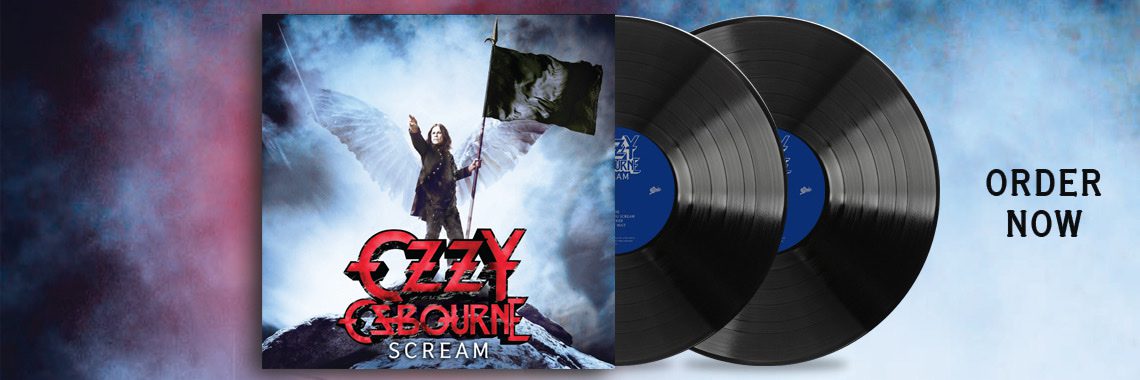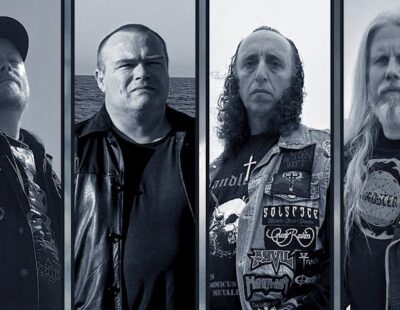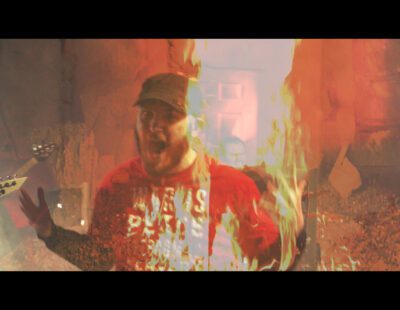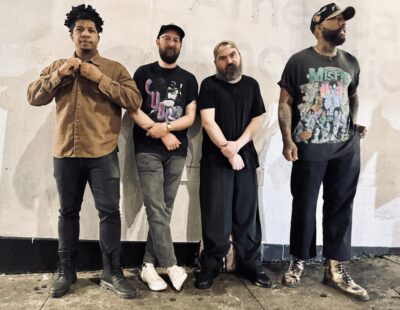On November 12th, Norwegian death metal atavists Obliteration finally broke their silence with Black Death Horizon, the long-awaited follow-up to their awesome 2009 LP, Nekrospalms. Where ‘psalms spread the gospel of old-school death metal through riffs redolent of Autopsy et al, Black Death Horizon finds Obliteration visiting a new plane of extreme metal. Death metal, black metal, and weird outré HC punk; all are repurposed and emulsified into some weird noxious liquor that somehow makes old-school sounds taste fresh. It is a physically imposing record but psychedelic in its own way, too. As vocalist Sindre Solem explains, it’s a kind of magic.
It has been over three years since Nekrospalms, when did you start writing Black Death Horizon and why did it take so long?
“We started writing when we were still playing live and promoting our last album, Nekropsalms, in 2010, but it didn’t really work out. Everything we wrote sounded similar to last album only worse. We had quite a rough time trying to write the album but I think everything started to make more sense and the songs evolved into something we wanted about a year ago.”
It does sound and feel a bit different. Was it deliberate that is should sound different to Nekrospalms?
“I think just after we did Nekropsalms, and toured on that album, the general attitude in the band changed. Perhaps we got older, I don’t know, but the intentions we had with our Nekrospalms album, we fulfilled that part of ourselves when we finished Nekrospalms so we wanted to do something a bit different. I think just the general atmosphere within the band and with us as people had become more cynical, and colder since the last album.”
Did you want to distance yourselves a little from the old-school death metal scene?
“I think unconsciously, yeah. Because with Nekropsalms, I felt that the environment within the entire metal scene at that moment was over-produced and fucking boring, and that none of the good old bands got the credit they deserved. We tried to bring back that kind of production and add kind of hidden tributes to Winter and Autopsy in the songs. But I feel lack the reference culture within metal has gone too far and after Nekropsalms we put that part of us behind us. Now we just want to create something that sounds more like us. I don’t know quite how to put it, but when we wrote the last album we wanted to evoke a certain atmosphere. We wanted this to sound dark; the energy must really make us go apeshit. We just had a different perspective on how we were going to write songs. We didn’t think of inspirations or stuff like that; the general feeling the songs gave us was more important, and going outside of the death metal boundaries did not matter at all. I think it is really important to just say ‘Fuck the boundaries!’ and go wherever the song takes you.”
Absolutely. There is almost too much love for the old-school and we’re in danger of losing the danger . . . What is your writing process like?
“Obliteration is by far a morbid democracy. Ha ha! There is a lot of magic happening within the rehearsal room or from just hanging out together. Some songs were . . . Arlid [Myren Torp, guitar] usually has some riffs or ideas but a lot of this album has evolved [with us] together at the rehearsal room, and the difference is that we have had a few lyrics completely finished, that we were very happy with, before we had any music for them, so we were in the rehearsal room and I was reading the lyrics, and we were thinking that kind of feeling did this sentence or this verse give us. We tried to write the riffs and arrangements around that. We did a lot of that together. Sometimes it works and sometimes it doesn’t but in the next rehearsal you can come back and have a really good idea out of something that we did the last time. If that makes sense.”
You recorded it yourselves again at the same same studio in Kolbotn, what is it like?
“It’s owned by our guitarist and the drummer from
Do you think that the restrictions placed on underground musicians when it comes to recording conditions and so on help with the creative process, in the sense that necessity becomes the mother of invention?
“Yeah you have to work harder, I guess. But then I don’t think that many bands have that restriction right now. I don’t think those restrictions are necessarily positive but if you have a big, fancy studio where you can do whatever you want and just replace drums and everything I think it is harder to say no. In our studio, we use a lot of time to make suer that the drums and the amps sound good before we start recording so we don’t have to work that much at the end. But it is important to record extremely fast so that you can keep some of that energy up, and keep that atmosphere and spontaneity in everything. The music in metal is supposed to be safe so it is really important to me that the production fits the entire atmosphere and feeling of the music. I just feel that if it doesn’t have soul and character and doesn’t give me something on an emotional level then it is fucking boring to me. It doesn’t have to be metal, but all art-forms, whatever, if it doesn’t move me then it is worthless, and I think that most over-produced metal albums over the last ten years are like that.”
I’d imagine you don’t like to do too many takes? Is it a question of doing as much rehearsal as possible beforehand then firing right in to it?
“Then it sounds more fresh, more alive. It sounds flat and dead if you do it over and over again.”
Did you have any outside help with the recording?
“Well Kick has worked as a studio engineer, kind of, and he has a set of ears that works well, so he gives us compliments or criticisms during the recording. We have this one guy who lent us his stereo tape recorder so we recorded the master on that stereo tape and delivered that to the mastering. He helped us with that, but it was mostly us.”
Is there a punk/hardcore influence on Obliteration? There seems to be more of that on Black Death Horizon.
“Yeah, Arlid and me have been listening to a lot of crust punk, and not just Swedish bands but American bands have been really important to us to, like Deadboys. We’re big fans of Deadboys, and of course bands like Discharge and all that shit, but also newer crust like Tragedy, Talk is Poison. I am a huge Cro-Mags fan also. It kind of shines through. We’re all into crust punk and hardcore.”
What can death metal take from crust punk and hardcore?
“I don’t know because I haven’t really thought about it like that because the punk side of our influences is just one of our many external influences; it just becomes part of the package. I just like the raw energy and the carelessness in hardcore. Many of those bands are really organic. There is one band called Sanctum, from Portland, Oregon, and I think they have broken up now but they are the perfect mix between hardcore punk and Bolt Thrower-ish extreme metal, and they are fantastic.”
**Order Obliteration’s Black Death Horizon here
**Obliteration on Facebook






